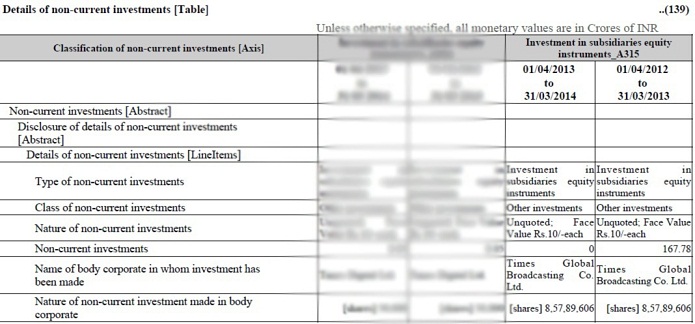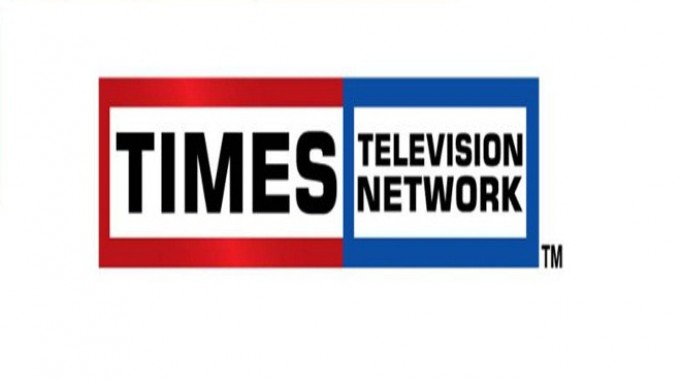Times Now-valued at Zero?
“India’s most watched English news channel”, goes the claim. Love it, hate it, or ridicule it, you just cannot ignore Times Now. Its debates (and not merely the arguments raised) become talking points at lunch conversations the next day; Its editor, ArnabGoswami, is staple fodder for stand-up comedians and internet memes; and its rivals end up invoking the channel in their advertisements. It has spawned clones in the regional media. Its flagship show, the News Hour, has two title sponsors, and gets to increase ad rates in a slowing market. All this is a standard recipe for financial success, if nothing else, one would argue.
Except that at the boardroom of its parent, Bennett Coleman and Co, popularly known as the Times Group (which also publishes some of India’s most widely read newspapers, the Times of India and the Economic Times, as well as runs the business news channel ET Now), they don’t seem very convinced. BCCL, as per its latest available Balance Sheet, that is, on March 2014, has written down it’s entire investment in its wholly owned subsidiary, Times Global Broadcasting Company Ltd, which has just one business, Times Now, valuing it at Zero. In layman’s language, that translates to a fact that the Board of BCCL estimates that there is no value that can be expected to be derived from the channel in the future.
Accounting rules require that any investment of a company be showed in the Balance Sheet at the cost at which it was acquired (even if the value increases, the increase is not reflected), unless there is a permanent diminution in the value, in the estimation of the Company’s Board. If there is a permanent diminution, the value of the investment is to be written down to reflect this decrease.
An email sent to Raj Jain, CEO of BCCL, asking about the write down as well as several other questions relating to disclosures was met with this reply: “The privately held BCCL group and its subsidiaries are filing all necessary returns and documents with the relevant authorities, and that these are obviously independently audited before being sent to the relevant authorities”. BCCL’s accounts are audited by SR Batliboi& Co (Network firm of Ernst & Young) and Lodha and Co together.
From data picked from the group’s filings with the Registrar of Companies, at the beginning of Financial Year 2013-14, the value of TGBCL stood at Rs 167.78 crores, after a write off of Rs 280 crores in FY 2012-13. During 2013-14, BCCL seems to have invested an additional Rs 66 crore in the company, and then written off the entire balance of Rs 234 crores. (Therefore, over two years, they have written off Rs 514 crores of investment in Times Now).

The BCCL March 2014 Balance Sheet, page 135
Subsequent to this write-off, in February 2015, the Company obtained the (mandatory) approval of the Bombay High Court to transfer the channel to the parent (leaving TGBCL with merely the distribution network), again at zero consideration. The restructuring would help BCCL share content and infrastructure between it's different offerings, and sell advertisements as a bouquet, the scheme argues, whereas TGBCL will be able to scale up as a dedicated distribution network. Once the necessary resolutions are passed by shareholders of both companies, Times Now will become directly owned by the parent company.
But even that transaction does not explain the earlier write-off. At least seven experts from the fields of valuation, auditing and tax-consulting that this reporter spoke with could not come up with any possible explanation for why a going concern, a market leader at that, like Times Now will be valued at zero. Mind you, a company cannot simply write-down an investment unless it actually believes its economic value has fallen (usually based on an independent valuation by an expert).
SumitMahajan, partner at Walker Chandiok, a network firm of Grant Thornton, feels that the growth rate in TV news business may come down, but it’s not like anybody is close to shutting shop. In fact, during the year in which the channel was written off financially, it did make a profit of Rs 23.79 crores, up from Rs 10.73 crore in the previous year, and Rs 1.65 crores in the year before.
Times Global Broadcasting (Rs cr)
|
Year |
Revenues |
Profits After Tax |
|
2011-12 |
179.13 |
1.64 |
|
2012-13 |
213.90 |
10.73 |
|
2013-14 |
261.55 |
23.79 |
So if the company’s financial performance is steadily improving, has a brand image that is the dream of marketing managers, and is, by all accounts, the market leader, why does its parent not see any value in the company? Even if one were to doubt the rate of growth of any business it is improbable that a continuing operation generating cash profits and having a strong brand will be valued at nothing, says Nikhil Singhi, partner at audit firm Singhi& Co.
One is reminded of the Rs 100 crore defamation case against the channel. The Bombay High Court had ordered the company to pay the amount. But in its (TGBCL’s) Director’s Report, it says that the company has filed an appeal and feels that the chances of succeeding in the appeal are high. And in any case, that does not require a write-down exceeding the claim amount.
Often, asset valuation is depleted to get tax benefits. But that also seems unlikely to be the case here as the accounting treatment used does not result in a tax advantage, according to experts.
What confounds even further is the fact that in the books of the subsidiary, TGBCL, there was absolutely no hint of depletion in value during 2012-14. Times Global Broadcasting, which BCCL records as zero value, had assets of Rs 118 crore and Liabilities of Rs 77 crore. In 2013-14, it earned Rs 158 crores in revenues from advertisement, Rs 47 crores from subscriptions, and Rs 60 crores from other sources. To earn that, it spent Rs 237 crores, including Rs 92 crores on their employees, and Rs 70 crores as advertisement expenses (explaining the ad blitz before significant events like elections and the budget), leaving a profit of almost Rs 24 crore.
So then, what could be the reason for this unexplained accounting treatment? While there is no hint yet about what motivated this write-down, the answer could well lie in the disclosures of the company in the next few months. The BCCL CEO remained silent on the question about whether there was any change in the shareholding of TGBCL post March 2014, the date of its last Balance Sheet.
Or is it just possible that there is something that we don’t know yet about Times Now that makes it actually worth nothing? Now that’s something the Nation would surely want to know!!!
Such articles are only possible because of your support. Help the Hoot. The Hoot is an independent initiative of the Media Foundation and requires funds for independent media monitoring. Please support us. Every rupee helps.







